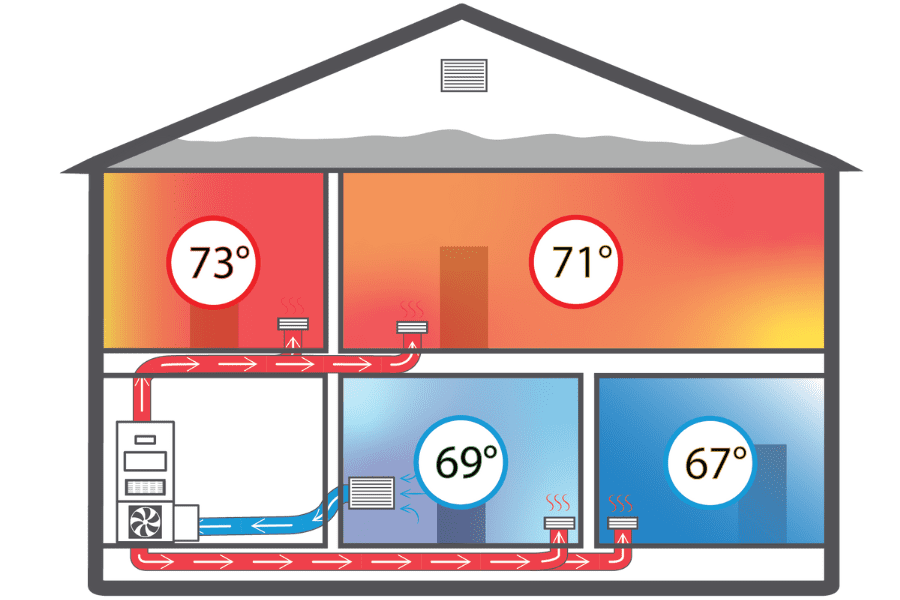Mar 22, 2024
What’s on the Horizon for Heat Pumps?
Electric heat pump solutions for space and water heating are readily available for single-family applications, with the market maturing quickly.
By: Jeff Luoma

States in the Northeast and Mid-Atlantic have established ambitious goals to reduce carbon emissions. A large slice of the reduction pie is to heat buildings and provide hot water efficiently with limited to no use of fossil fuels. Heat pumps have the capacity to do this – even in Northeast winters. There are now hundreds of options for cold climate heat pumps. Heat pump units have outsold gas furnaces in the US for the past two years, and several Northeast states have pledged to quadruple heat pump installations by 2030. However, most of these gains have been for space and water heating in single family homes. Multifamily and commercial building heat pump solutions are less mature and market awareness is still limited.
NEEP has released a new emerging technology brief to explain some of the newer and lesser-known applications of heat pumps for the residential and commercial market. NEEP already has an extensive heat pump listing and data of cold climate air source and ground source heat pumps as part of our regional Heating Electrification Initiative.
Here are short descriptions for each of the six categories we consider to have promise as the “next wave” for heat pump technology. We’ve included a few advantages and challenges for each category.
Cold Climate “Micro” Heat Pumps

Commercial Packaged Heat Pumps (aka Rooftop Units)

Air-to-Water Heat Pumps for Space Heating

Central Heat Pump Water Heaters

120-Volt Heat Pump Water Heaters

“Combi” Heat Pumps

Key Takeaways
- The Northeast/Mid-Atlantic region has aggressive emission reduction targets, including a focus on decarbonizing the building sector. Increased energy efficiency and electrification of key end uses, including space and water heating, provide critical pathways to building decarbonization.
- Electric heat pump solutions for space and water heating are readily available for single-family applications, with the market maturing quickly. Heat pump solutions for larger multifamily and commercial applications are less mature, and market awareness of these solutions is low.
- A series of emerging heat pump solutions are now available for larger multifamily and commercial applications, including technology suited for applications with low-temperature performance.
- Energy efficiency program administrators and policymakers should be evaluating these new solutions for inclusion in pilots and program offerings.
- Regional stakeholders should be collaborating on opportunities to develop these markets through coordinated market interventions.
This article was originally published in the NEEP Blog and is republished with permission.





